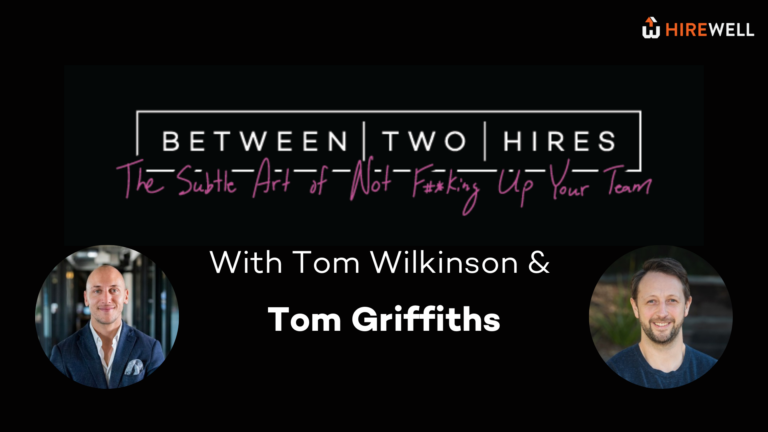Are you struggling to find your dream job or looking to pivot your career? Conducting Informational Interviews, by talking to professionals in your target field can be immensely helpful in understanding the ins and outs of the industry or role you’d like to pursue. It can also be a great foot in the door with an organization. We’ve broken down how to navigate informational interviews with 4 main goals to make the most of your career transition!
1. Building your Network
Before you run to LinkedIn, make sure you take the time to do a full self-inventory of your skills and what positions you as unique compared to other more traditional candidates. Taking the extra step of completing a comprehensive skill inventory will allow you to better target which industries and professionals to focus on if you’re not sure of your direction.
After you finalize your skills inventory and narrow down which industries and positions you are qualified for, you can begin to methodically build your network.
-
One way to do this is to research a handful of companies you are interested in and reach out to those at the company who are in the department you are hoping to break into. Check out how to create your target list here.
-
Additionally, don’t underestimate the network that you already have built, even if it is in a different industry. Reach out to friends and acquaintances and ask if they know of anyone in their network in the field you are interested in who might be willing to speak with you.
-
Lastly, just because your college experience might be a distant memory doesn’t mean you can’t leverage your alumni network or your alma mater’s career center.
-
Create a simple message template that you can tailor to specific people/opportunities. Ask for a favor/advice – people love to be seen as experts and help people, if you approach it in the correct manner.A simple message stating who you are and that you would appreciate an informational interview at their convenience will most likely warrant a positive response.
-
Ex. Hi Matt – I’m a friend of your daughter, Julia. I am graduating from college in a few months, and was hoping you could help with some career advice. I’ve been researching the recruiting industry and think it sounds like something I”d be passionate about. Do you have time to chat in the next few weeks about your job and how you got into the field? I know you are busy, but I’d love to get your insights about the industry. Thanks!
-
Once you have an informational interview scheduled it is vital that you prepare as if this were a “real” interview. Going into a conversation blind reflects a lack of initiative and respect, so here are a few tips to prepare yourself:
-
Take the time to review their LinkedIn profile, the website of the company they are at, and any open positions that might be of interest to you.
-
Make sure you come prepared to the conversation with questions. Important questions to touch on are asking about their background and career trajectory, projects or initiatives they are currently working on, and resources they tapped into when entering the industry.
All of this preparation not only showcases your initiative to the interviewee, but also allows you to gain the most value out of your informational interviews. Think of these interviews as your way of skipping the paper step of a job application and planting the seed for a future internal referral. This is why thorough preparation is so key.
2. Telling your Story
You’ve secured the informational interview. Now is the time to tell your story. The best way to go about this is to think of your story as a sales pitch you’re delivering to a potential client. The most compelling sales pitches have a strong “Why” statement.
In this case:
-
Why do you specifically want to break into XYZ field and why should this person walk away from the conversation with a desire to potentially hire you down the line?
-
What experiences do you already have under your belt that you could successfully transfer over?
-
How do these experiences make you unique compared to the “typical” candidate?
Use this time to leverage your past experiences to showcase the potential value-add of hiring someone like yourself. This can also be a great time to segue into what you’re specifically trying to accomplish in your career switch and what your future goals entail. An important aspect to consider before actually “pitching” yourself to the interviewer once you have your story down pat is to ensure you are not coming off as wishy-washy or too open. Having a bit of flexibility in what you are interested in or believe you are well-suited for is one thing; however, being open to absolutely anything can read as if you haven’t put forth serious effort to take stock of what you can actually bring to the table that is of real value and relevance.
The biggest takeaway is to remember this motto: “Own your Pivot”. If you have a compelling reason why this transition makes sense for you, it will likely make sense to the person you’re telling it to.
3. Adding Value
Beyond highlighting the value you bring a team as you tell your story, you want to add value to the conversation with the interviewer. They are being generous with their time and you want to make sure this isn’t a 1-way relationship that only benefits you.
Ask yourself what YOU can bring to the table and do a bit of research on your interviewer. If they are active on LinkedIn, look at what they post, like, share, etc. and find a common interest to expand upon. Maybe it’s advice you can give, a book recommendation, an article to read, an introduction to someone in your network that they find interesting or educational.
If you don’t find something you feel confident talking about, make sure to ask them questions during the conversation. Having tips on something non work-related (ie. travel, restaurants, hobbies) is also a great way to form a real connection and add value.
Expressing gratitude for their time and being an active participant in their professional sphere is also a great way to add value. Comment on their LinkedIn posts and give back to them in whatever way you can.
4. Continuing the Relationship
Ok, there are two parts to this.
1) Following up with interviewers throughout your job search is key. You want to stay on their radar for open positions or referrals within their network, but no one wants to come off as that person who asks for updates every Monday at 8 AM on the dot. It is reasonable to follow up every 3-4 weeks but if checking in with them is organic, even better.
A very easy way to make follow-up organic is to take a piece of their advice and execute on it. If they recommended a book or article, read it. Suggested a certification course? Take it. Referred you to someone else within their network? Reach out, talk to them. Once you’ve completed the action item, tell them about it! This lets them know you value their professional opinion and are grateful for their time.
Furthermore, use a tracking system. Spreadsheets or free tracking tools work great, and utilize calendar reminders to ensure you are following up with interviewers and on job applications appropriately. Here are a few helpful specifics to track:
-
Your target companies
-
Which companies you’ve interviewed with
-
Who you spoke with
-
When you last spoke with them
-
What the conversation was about
-
What platform you communicated through – email, LinkedIn, phone, etc.
2) At this point, you’ve secured as many interviews as necessary (likely many more if you are making a big career change), built a solid network within your target field, and you *finally* land a job! All of those people who helped you along the way are a huge part of that success and you should share that with them.
Networking is an integral part of any professional’s career, particularly when it comes to making a career switch. While networking is often touted as the end all be all to professional development, it can often feel ambiguous and lacking in value. The informational interview is a better way to attach immediate structure and value from your networking efforts that can also feel more genuine and less burdensome.
Once you have landed a new position – pay it forward. Be sure to maintain the same level of giving as those who helped you along the way. Not only will it make you feel fulfilled, it will also allow you to continue to expand your network and pipeline talent for future internal positions. Networking can be fun and mutually beneficial, it’s all about how you maintain the relationships afterward, so get out there, lock in those interviews, and pay it forward!










